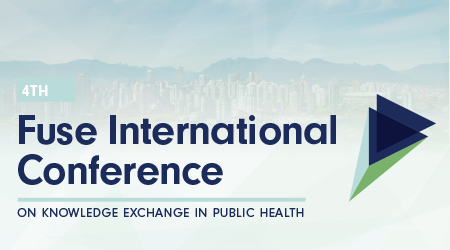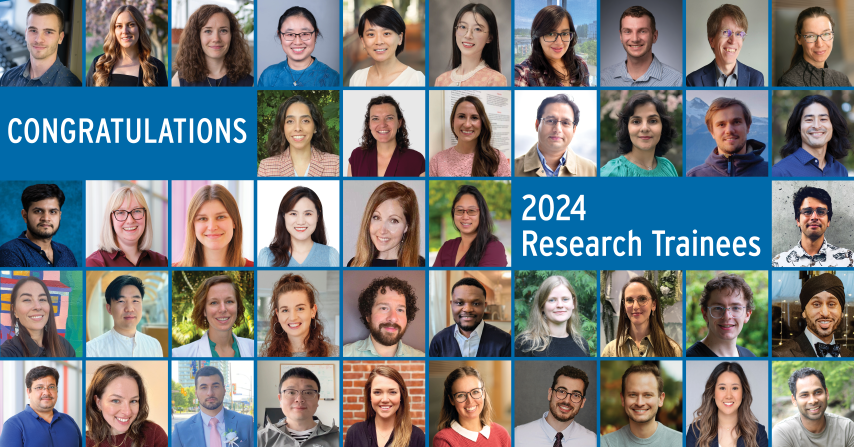Fuse 2018: Building partnerships and supporting the use of research evidence in policy-making
24 May 2018

When MSFHR started planning Fuse 2018, our goal was to bring together international experts in knowledge exchange and public health to share ideas and learn about how best to support the use of research evidence, including conflicting evidence, in policy-making.
The result was over 180 speakers and attendees from across North America, Europe, Australia and beyond participating in plenary sessions, workshops, PechaKucha and networking events to share experiences and debate how to best produce, integrate and communicate research evidence for policy-making in a way that promotes and protects the health of citizens.
Despite a huge variety of experiences and expertise, three key themes ran throughout the conference: The importance of true partnerships, the need to speak the same language, and the benefits of embedding knowledge exchange into research, policy-making, and institutions.
Partnerships, building relationships and creating trust
Ensuring early and active involvement of research users as equal partners in the research process was a common theme across many of the Fuse 2018 presentations.
Building trust in collaborations and learning to use each other’s strengths as researchers, people with lived experience, and policy-makers was discussed as central to conducting and sharing research that is applicable, useful, and impactful for everyone involved.
Key takeaways:
- Ask first so you are answering the right questions. Dr. Christopher Horsethief and Dr. Heather Gainforth both highlighted the importance of first asking ‘How can I help?’ so your research answers the right questions for the community you’re working with.
- Build allies across the entire system. Embedded Scholar Dr. Sana Shahram stressed the value of building relationships and trust across worlds – research, policy, and the communities you work in.
Speaking the same language
Throughout the conference, speakers discussed the disconnect between what is good, impactful research evidence for a researcher, and what a policy-maker sees as a compelling reason to take action. Dr. Paul Cairney, Dr. Moriah Ellen and Kylie Hutchinson shed light on how to bridge this gap and make good evidence accessible and impactful for different audiences.
Key takeaways:
- Share as little as possible to communicate as much as possible, with layers of information to allow your audience to find out more on their own terms.
- “Evidence is credible but stories are memorable.” Dr. Moriah Ellen shared this quote from Dr. Lisa Simpson, President and CEO of AcademyHealth in Washington DC, highlighting the importance of using facts and their meaning to create compelling stories.
Want to learn more? Read Dr. Paul Cairney’s blog: What counts as evidence?
Embedding knowledge exchange
As the conference came to an end, Dr. Ashley Adamson, Director of Fuse – The Centre for Translational Research in Public Health, reminded us that although conference speakers and attendees agreed that co-production, integrated knowledge translation and patient engagement are good things, we still need to sell these concepts to other audiences and embed them into research, policy-making, and institutions so that they become the norm.
Key takeaways:
- We need to institutionalize research knowledge use. Dr. Steven Hoffman highlighted the need to move from facilitating knowledge translation to institutionalizing it in both research and policy-making.
- If we want more evidence-based practice, we need more practice-based evidence. Dr. Larry Green called for more practice-based evidence to close the gap between what public health professionals want, and current research evidence.
The 4th International Fuse Conference on Knowledge Exchange in Public Health was a fantastic opportunity for MSFHR and our conference co-hosts to bring together world-leading experts in knowledge translation and public health, and highlight the excellent work happening to support the use of research evidence in policy-making in British Columbia and beyond. In the words of Fuse conference attendee Naoimh McMahon, the conference was ‘an excellent opportunity to meet a diverse group of open-minded people with an interest in making positive change in public health policy and practice’.
Fuse 2018 was co-hosted by MSFHR, the BC Ministry of Health, the Public Health Association of BC, and Fuse – The Centre for Translational Research in Public Health.





